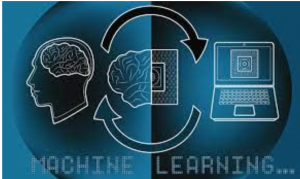Machine learning has become one of the most important technologies of the 21st century. As an emerging field of artificial intelligence, machine learning allows computers to learn and improve without being explicitly programmed. The capabilities of machine learning are transforming everything from healthcare to transportation to national security. In this post, I’ll explain what machine learning is, why it matters, and how it’s changing our lives for the better.

What is Machine Learning?
Simply put, machine learning is the ability of computers to learn patterns from data and make predictions or take actions without needing explicit instructions. It involves feeding tons of data into an algorithm that can recognize patterns that would be impossible for humans to spot.
For example, a machine learning algorithm can analyze millions of healthcare records and find correlations that can improve diagnostic accuracy. Or it can process billions of internet searches to learn what people are interested in and return better results. The more data the algorithms can analyze, the more accurate they become.
Real-World Impact of Machine Learning
Machine learning is enabling breakthroughs in nearly every industry. Here are just a few examples:
Healthcare
- Finding new treatments and detecting disease earlier through pattern recognition in medical images and data. This can greatly improve patient outcomes.
Transportation
- Self-driving car technology relies heavily on machine learning to navigate roads safely. This has the potential to reduce traffic accidents and increase mobility for underserved groups.
Business
- Machine learning algorithms help companies forecast demand, analyze market trends, recommend products, and optimize supply chains to boost efficiency.
Entertainment
- Services like Netflix and Spotify use machine learning to understand users’ tastes and recommend new movies, shows, and music they will like. This creates a better experience.
Defense
- Machine learning aids in analyzing threats, processing intelligence, strengthening cybersecurity, and deploying resources more strategically. This bolsters national security.
As you can see, machine learning is fundamentally changing how we live, work, and protect our nations. Its benefits are immense.

How Does Machine Learning Actually Work?
There are several types of machine learning, but most work on the same basic principles:
- Data is fed into an algorithm or model
- The model looks for patterns or relationships in the data
- The model learns over time as it processes more data
- The model improves its accuracy making predictions or decisions
Some of the main machine learning methods include:
- Supervised learning – Models are trained on labeled data, giving correct answers to learn from
- Unsupervised learning – Models must find patterns in unlabeled data with no teacher
- Reinforcement learning – Models learn through trial and error interactions with environment
While the inner workings are complex, machine learning models can be simple for users. You provide data, the machine learning model does the rest!
The Future with Machine Learning
We’ve only scratched the surface of what machine learning can do. As algorithms get more advanced and data becomes more abundant, the potential is amazing.
Here are some possibilities that get me excited:
- Robotics infused with machine learning could help elderly people live independently longer
- Sophisticated fraud detection could provide air-tight cybersecurity for businesses
- Precision medicine tailored to individuals could lift healthcare to new heights
Machine learning expertise will be a highly valued skill throughout the 21st century. I encourage everyone to start exploring how machine learning can transform their lives and careers for the better. The future is bright when humans and smart machines work together!
What type of data does machine learning need?
Obviously, the main task of a data scientist in Applandeo is not to collect data into a database at all, but to correctly form these sets. A marking error can ultimately nullify the results of all work. For example, if the test set is close in content to the training set, the functionality of the model will be limited. Since the analytical core “gets used” to certain inputs. In real conditions, where the range of options is much wider, it will not work.
Conclusion
Machine learning is already changing the game in every industry. It allows computers to improve without programming and make smart decisions by detecting patterns. While the technical details are complex, machine learning models are easy for users to implement. As algorithms and data sets continue improving, machine learning has limitless potential to solve problems, drive innovation, and take society to new heights. The machine learning revolution is here – embrace it!
FAQs
What is machine learning in simple terms?
Machine learning is the ability of computers to learn from data without explicit programming and improve at tasks through experience.
How does machine learning work?
Machine learning works by feeding data into algorithms that can recognize patterns and relationships to make predictions or decisions without human intervention. The models learn over time with more data.
What are some examples of machine learning?
Examples include self-driving cars, product recommendations, fraud detection, speech recognition, search engines, medical diagnosis, spam filters, and more.
What can machine learning do?
Machine learning can automate tasks, predict outcomes, recognize patterns, optimize systems, adapt with experience, and deliver insights not possible manually.
What industries use machine learning?
Healthcare, transportation, finance, manufacturing, retail, government, technology, media, cybersecurity, and more all use machine learning.
Is machine learning the future?
Yes, machine learning will drive innovation and automation across every industry. Machine learning expertise will be a highly valued skill in the future job market.
What are the benefits of machine learning?
Benefits include personalized experiences, improved efficiency, lower costs, breakthrough insights, better decision making, new products and services, and more.
What are the risks of machine learning?
Potential risks include biases, lack of transparency, cyber threats, job losses, and ethical issues around privacy and accountability that must be carefully managed.
Disclosure: The articles, guides and reviews on BlowSEO covering topics like SEO, digital marketing, technology, business, finance, streaming sites, travel and more are created by experienced professionals, marketers, developers and finance experts. Our goal is to provide helpful, in-depth, and well-researched content to our readers. You can learn more about our writers and the process we follow to create quality content by visiting our About Us and Content Creation Methodology pages.
